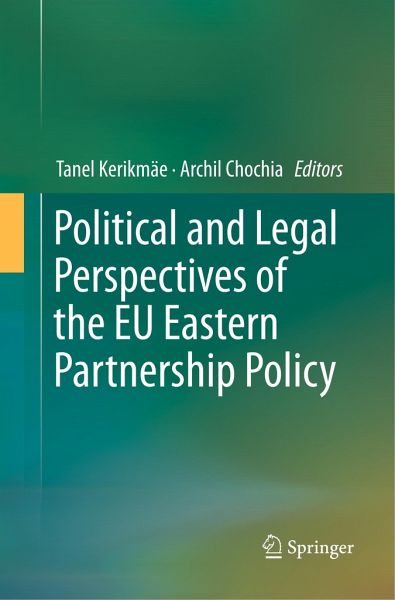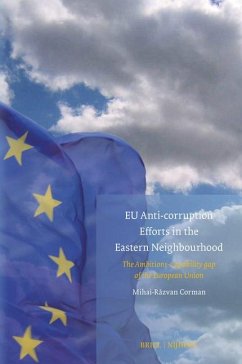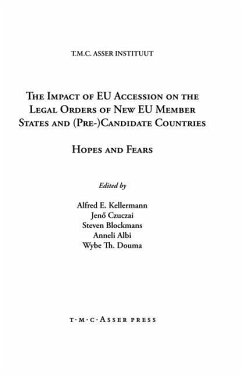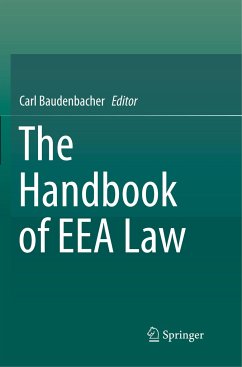
Political and Legal Perspectives of the EU Eastern Partnership Policy
Versandkostenfrei!
Versandfertig in 6-10 Tagen
76,99 €
inkl. MwSt.

PAYBACK Punkte
38 °P sammeln!
This book examines EUEastern Partnership taking into account geopolitical challenges of EUintegration. It highlights reasons for limited success, such as systematicconflict of EU External Action. In addition, the book analyses country-specificissues and discusses EaP influence on them, investigating political, economicand social factors, while seeking for potential solutions to existing problems.The reluctance of the Eastern countries to the European reforms should notreduce political pro-activeness of the EU. The authors suggest that EaPstrategies should be reviewed to be more reciprocal and ...
This book examines EUEastern Partnership taking into account geopolitical challenges of EUintegration. It highlights reasons for limited success, such as systematicconflict of EU External Action. In addition, the book analyses country-specificissues and discusses EaP influence on them, investigating political, economicand social factors, while seeking for potential solutions to existing problems.The reluctance of the Eastern countries to the European reforms should notreduce political pro-activeness of the EU. The authors suggest that EaPstrategies should be reviewed to be more reciprocal and not based solely on theEU-laden agenda. This book is one of the good examples of cooperation betweenscholars not only from EaP and EU countries, but also from differentdisciplines, bringing diversity to the discussion process.














